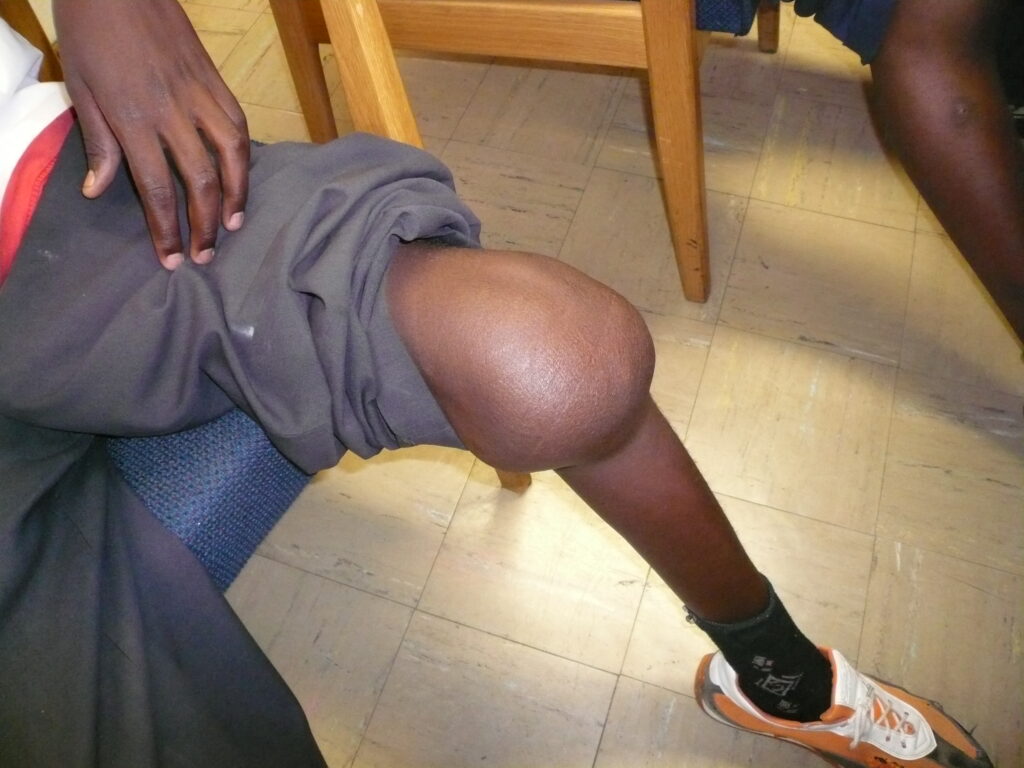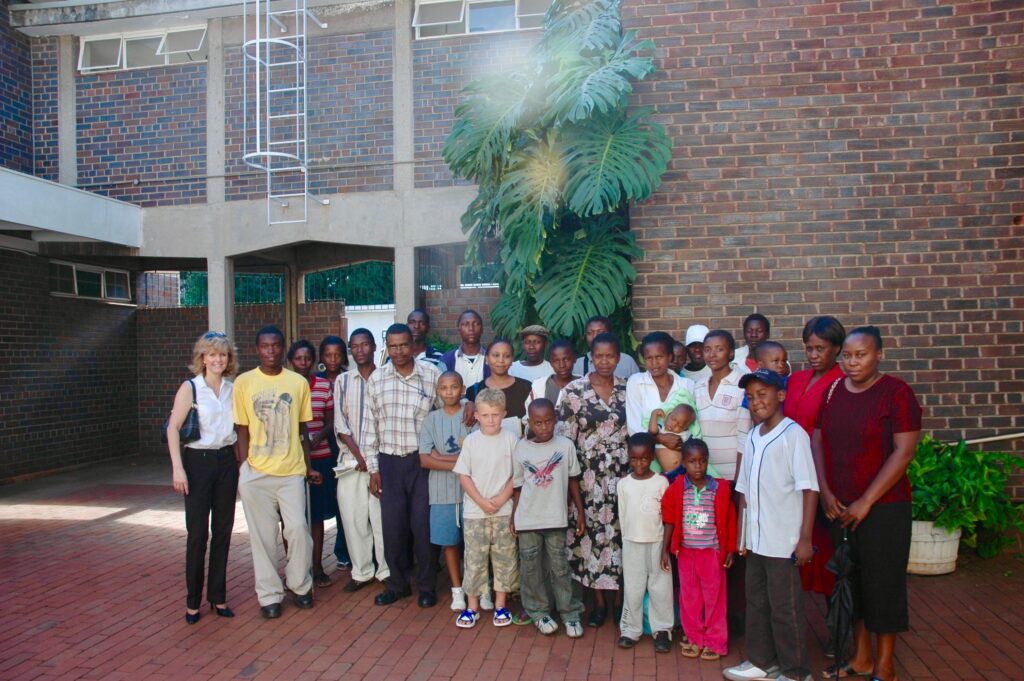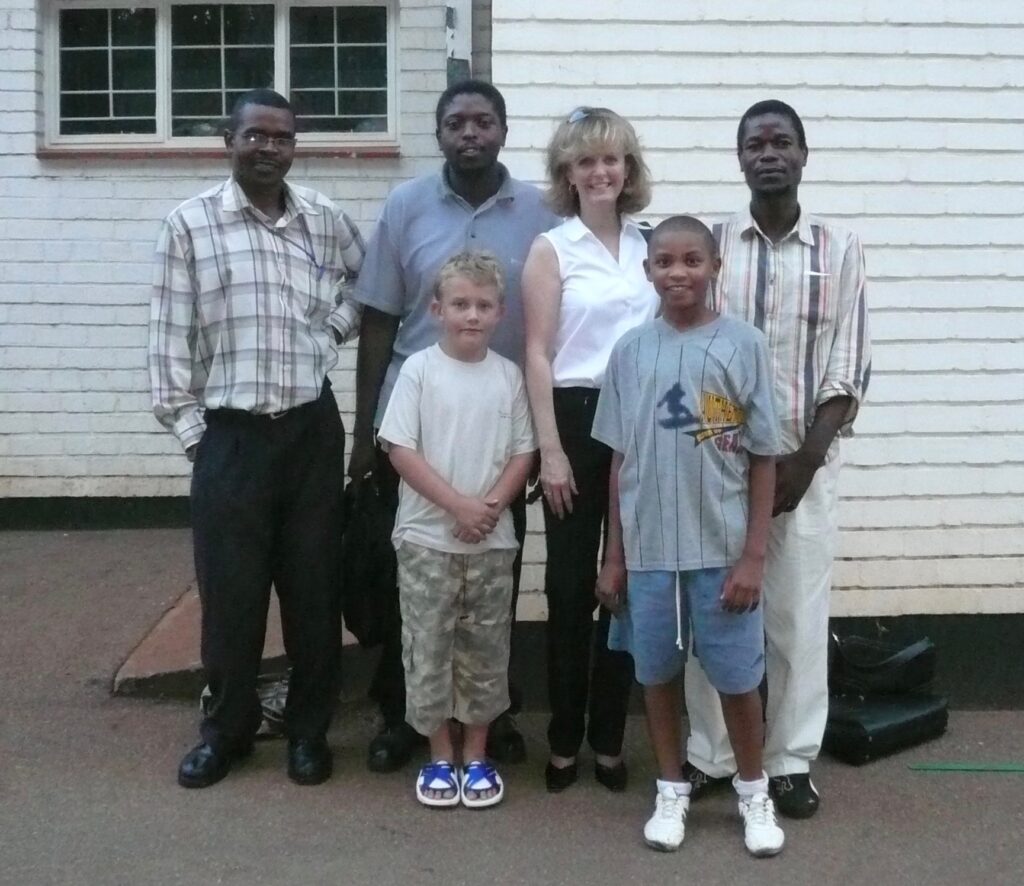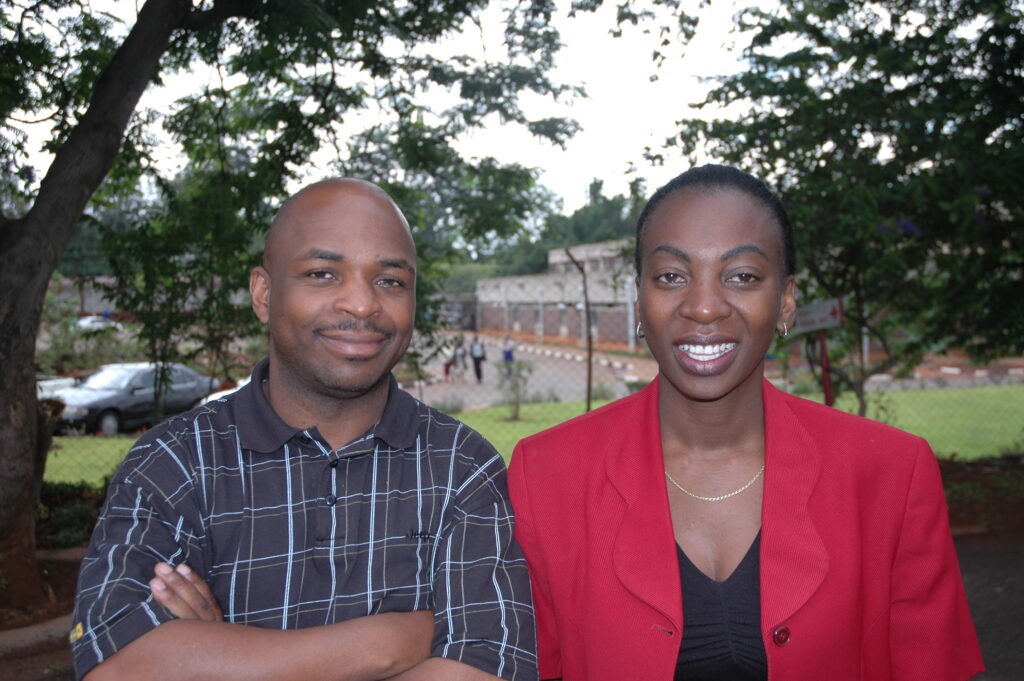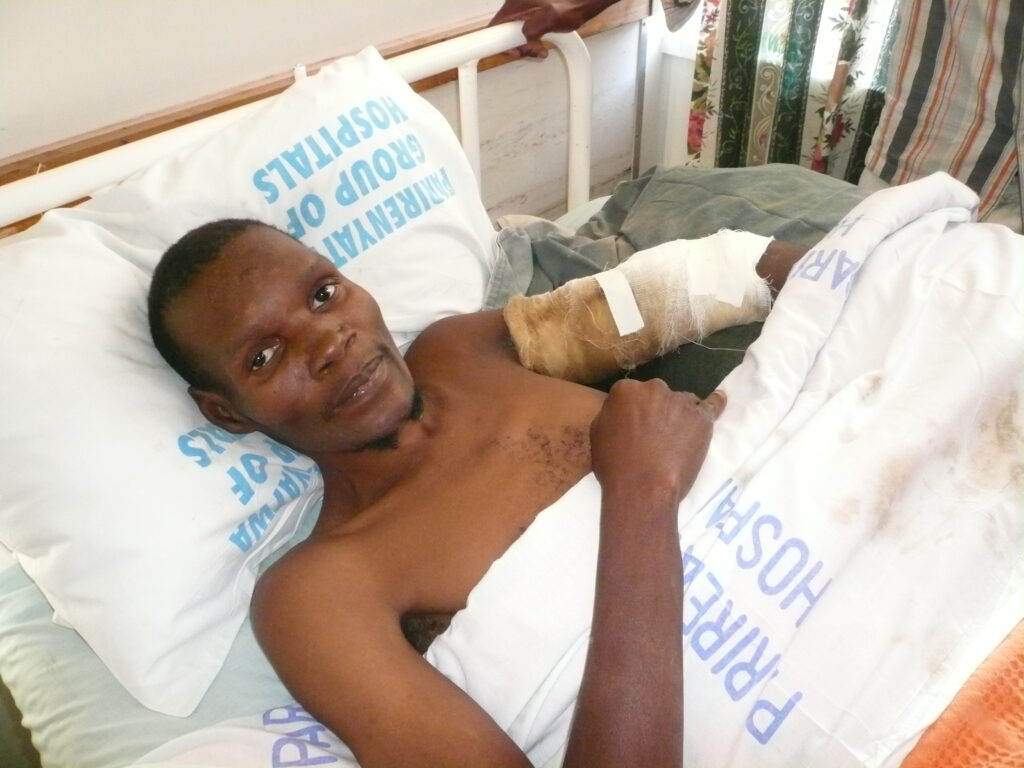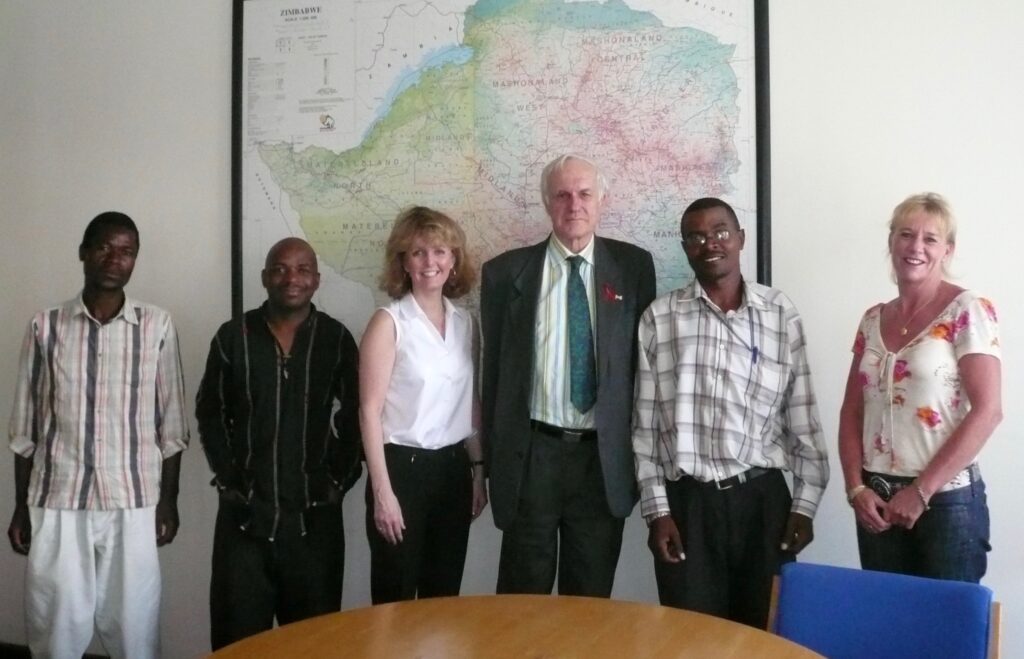Zimbabwe is just as beautiful as it was in 2001 when I visited for the second time. Lush, green, and filled with some of the friendliest and most polite people on earth. I arrived in Harare, the capital, late Sunday night after 32 hours in transit. I received a warm welcome from Peter Dhlamini, my colleague and a person with hemophilia. We spent all day Monday visiting the Zimbabwe Haemophilia Association (hemophilia is spelled a la British, as Zimbabwe is formerly a British colony), meeting with many patients and also having a lovely visit with Dr. Timothy Stamps, personal medical advisor to Robert Mugabe, the president, and a member of the Health Ministry.
So what is hemophilia like in Zimbabwe? Try to imagine this: earning about $20 US a month, if you are able to work at all (unemployment rages at 80%); not being able to find gas when you need it; losing electricity several times a day; facing a drought (there go the vegetables you were growing to feed your family); not being able to go to McDonalds’, Wendy’s or Dunkin Donuts (they don’t exist here); indeed, not being able to eat out much at all because there is little food. Not being able to see a hematologist because there is none. Not being able to infuse with factor, because that is also near to impossible to get. I was told today that patients with hemophilia treat almost solely with the factor donations given by me, and that is not much. I tried to put myself in the shoes of Zimbabwean mothers, and I felt momentarily like I was on another planet, cut off, isolated, helpless. The children suffer immensely, and are used to suffering.
Meeting the families was simultaneously humbling and wonderful. We sat around a U-shaped table at the National Blood Service. Every child and young adult has joint contractures. One young man, Dickson, had the most severe case of synovitis in his knee I have ever seen anywhere. He is in immediate need of surgery. Another mother had already lost three sons to hemophilia: she lost twins at age 6 months, another one at age 2. She is left with one son, a lively 10-year-old. He husband left her, for bearing all these “defective” children. So many questions were asked: what to do about dental bleeding? How do we get tested if we suspect our son has hemophilia? Can you detect hemophilia in utero? What do you do when veins don’t cooperate? Can you get us butterfly needles? Syringes? Ace wraps? Such simple questions, such great needs. 
The meeting with Dr. Stamps gave us ideas on how to get more publicity for hemophilia. Stamps shared candidly that hemophilia is often confused with “pedophilia,” and thus many people shun anything to do with hemophilia. The way to counteract that is to promote hemophilia to the public. Stamps also noted how the Ministry of Health is focused on three big medical challenges: malaria, tuberculosis and AIDS. Hemophilia is in the “bottom of the inbox.” But this is not to say things are hopeless; through dedicated action and public awareness, things can turn around. This will depend primarily on the ZHA, which is composed of mostly patients. 
Sobering, but I love a challenge. I think there is hope for Zimbabwe, if the rest of the world supports it until it gains momentum and experience. And all that is possible. But Zimbabwe faces harsh economic times. I had a taste of this when we left tonight to try to retrieve some wayward luggage at the airport. We called the airport all day but the lines were busy, or not working. By 7 pm we finally decided to go by car, driven by Alex, father of a boy with factor IX deficiency. En route, we noticed his gas level was quite low, almost out. So we zoomed down dusty roads through neighborhoods cast into complete darkness by power outages, pausing to ask for specific people who know someone who might know someone who could get us just a liter of gas. Mission accomplished: we got a few liters, found my luggage, and returned to the hotel. I was amazed when the lights switched on and the internet worked. You learn to settle for little victories in the developing world, and appreciate luxuries tenfold.
